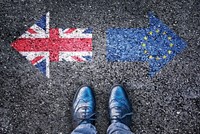Advertisement
Grab your lab coat. Let's get started
Welcome!
Welcome!
Create an account below to get 6 C&EN articles per month, receive newsletters and more - all free.
It seems this is your first time logging in online. Please enter the following information to continue.
As an ACS member you automatically get access to this site. All we need is few more details to create your reading experience.
Not you? Sign in with a different account.
Not you? Sign in with a different account.
ERROR 1
ERROR 1
ERROR 2
ERROR 2
ERROR 2
ERROR 2
ERROR 2
Password and Confirm password must match.
If you have an ACS member number, please enter it here so we can link this account to your membership. (optional)
ERROR 2
ACS values your privacy. By submitting your information, you are gaining access to C&EN and subscribing to our weekly newsletter. We use the information you provide to make your reading experience better, and we will never sell your data to third party members.
Careers
Better in than out
by Sir Fraser Stoddart
September 12, 2016
| A version of this story appeared in
Volume 94, Issue 36
The following is a guest editorial by Sir Fraser Stoddart, a board of trustees professor of chemistry at Northwestern University.
“One simple lesson from history is that when people come together to talk, to exchange ideas, and to develop common goals, wonderful things can happen.” These prophetic words of Queen Elizabeth II on Commonwealth Day (March 9) last year must be haunting her following the debacle that occurred on June 23 this year when 17.5 million people in the U.K. voted in a naively concocted and ill-timed referendum to part company with the close to 500 million inhabitants of the other 27 countries that constitute the European Union (EU). Rarely in the arena of human relationships have so few introduced so much needless uncertainty into the lives of so many, including themselves!
At the outset of my academic career in Sheffield, it became clear to me that the quality of scientific research in England could stand to benefit from embracing Continental Europe. From 1984 onward, I welcomed students into my research group from other parts of Europe. Cristina Vicent came from Madrid and made our first donor-acceptor catenane while Pier-Lucio Anelli from Milan earned the nickname Mr. Molecular Shuttle. When I arrived in Birmingham in 1991, my research group was more than 65% Continental Europeans. How did the British students respond? They raised their game and played their part. By 1994, David Amabilino had completed a synthesis of olympiadane and Stuart Cantrill had produced the blueprint for the quantitative assembly of the molecular Borromean rings at UCLA. My commitment to diversity continues with its rewards in the U.S.
Although encouraging statements have been made by the U.K. government on ensuring access by scientists to EU funding mechanisms, money is only a small part of the conundrum. It is the senseless destruction of the cosmopolitan culture maintained by the freedom of movement of people from these 27 countries that is on the line. It has enriched the intellectual lives of all Britons. Most of the leading research groups in chemistry in the U.K. host students from all over Europe in large numbers: A chemistry professor at a U.K. university can offer a Ph.D. studentship at any time during the academic year to a student from the EU at short notice. If the freedom of movement of EU citizens into the U.K. is curtailed, then the pool of talent plummets from more than 500 million to 65 million. How well would the Chicago Bulls fare in the NBA if they were restricted to recruiting players only from Illinois?
Britons might also ponder the history of the English language that has evolved over centuries and been enriched as a result of successive incursions into a small island by Celts, Romans, Anglo-Saxons, Vikings, and Normans. Their contributions to its extensive vocabulary paved the way for Chaucer and Shakespeare—through their poetry and prose—to prepare English to go viral worldwide under the mantle of the British Empire. The adoption of English by America as its official language established its position as the international language of science and technology, not to mention business and commerce. By accepting invaders and recognizing no borders, the English language flourished!
Queen Elizabeth’s Commonwealth Day message continues, “So many of the world’s greatest technologies and industrial achievements have begun as partnerships between families, countries, and even continents. But, as we are often reminded, the opposite can also be true. When common goals fall apart, so does the exchange of ideas. And if people no longer trust or understand each other, the talking will soon stop too.” With these thoughts ringing in her ears, it is to be hoped that the monarch will work passionately behind the scenes in London to dissuade her government from failing to learn yet another lesson of history, which is that small islands that isolate themselves off the shores of large continents are destined to eke out more impoverished existences than their continental cousins.
Time is running out fast for the U.K. It would help, Ma’am, if your worldly wisdom were to prevail closer to home. Time is not on the side of the EU either. It would be best for all concerned in Europe if governments within the EU were to speak out with one voice against the U.K.’s knife-edge vote to leave the EU and say, “No, you can’t.”
Views expressed on this page are those of the author and not necessarily those of ACS.
Related links:
#ScienceIsGlobal campaign and statement of European Academies
#ScienceIsGlobal campaign results
Royal Society comment on the EU referendum



Join the conversation
Contact the reporter
Submit a Letter to the Editor for publication
Engage with us on Twitter